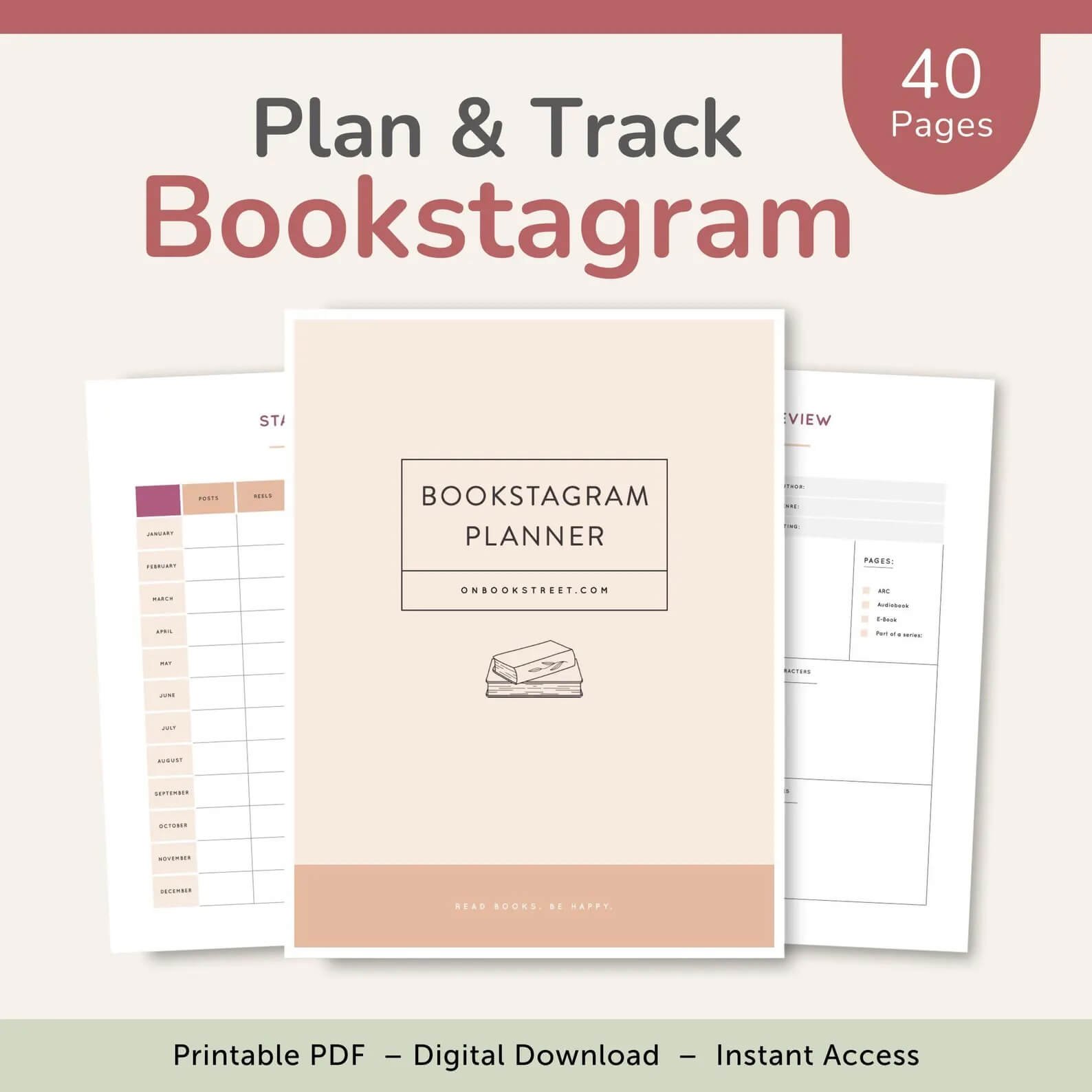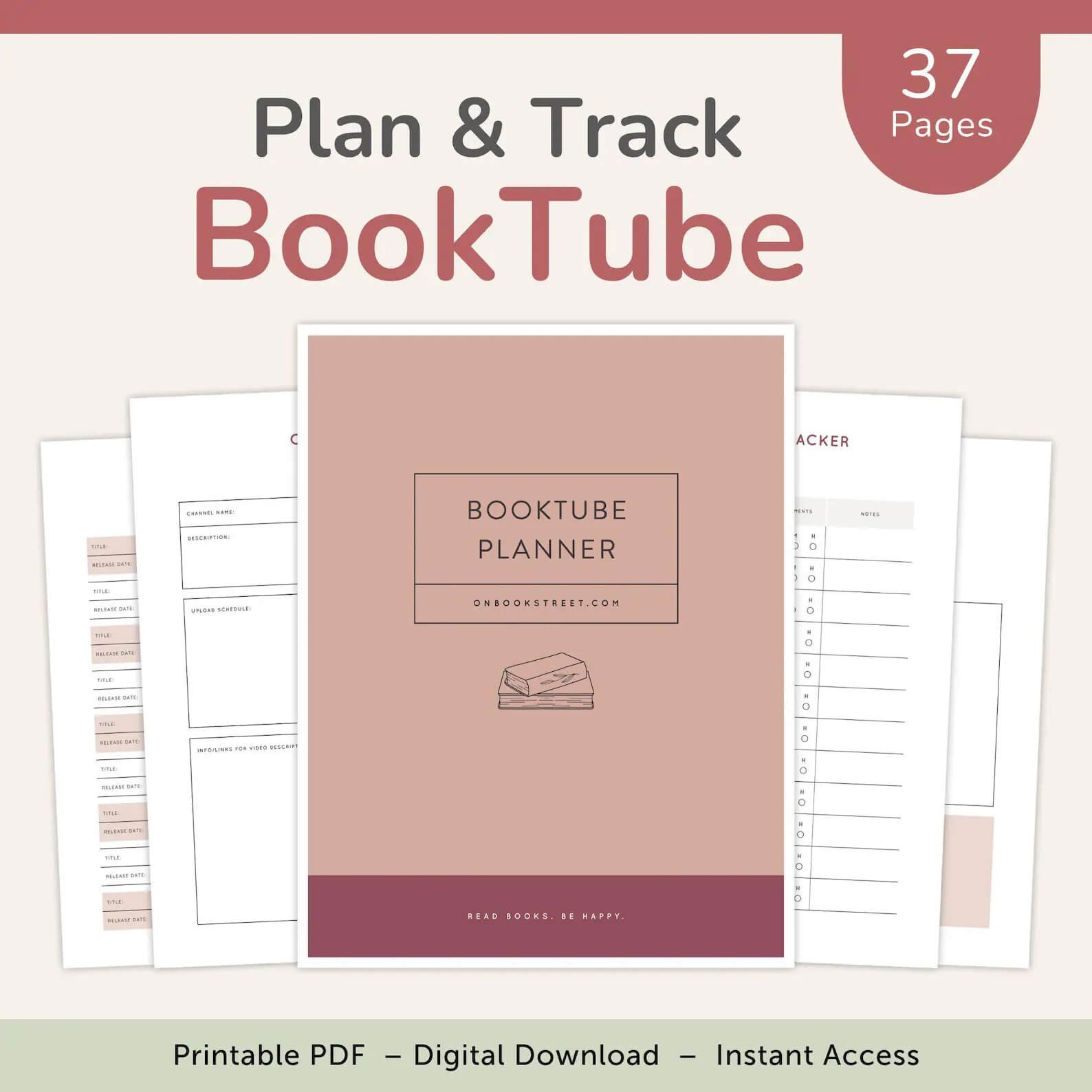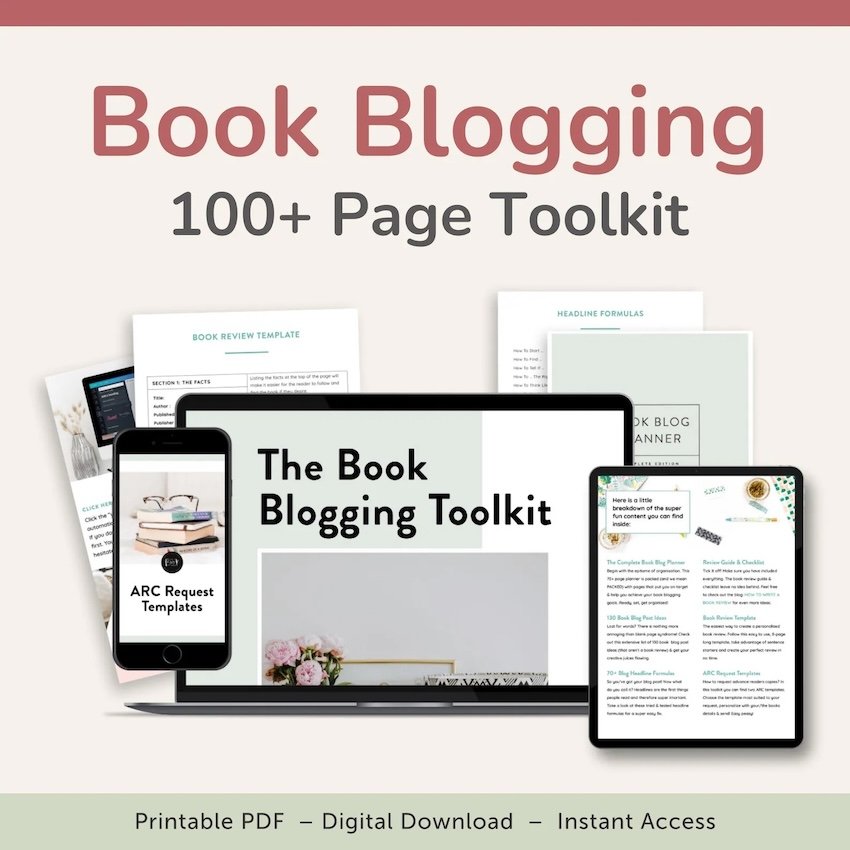How to Start a Book Blog – A Beginner’s Guide to Book Blogging
Whether it’s a fun past-time or a way to enhance your writing career, starting a book blog is a great way to get the most out of your reading.
Connect with like-minded readers, share your thoughts, improve your writing skills and indulge your love for all things bookish!
Follow this guide to creating the best book blog in the easiest (and most organised) fashion!
Book blogging for beginners
1. Read other Book Blogs
Time for a little background research!
No one ever wrote a book without reading one first. Spend an evening scrolling through other bloggers sites. You’ll find out what you like in terms of writing style and design. Even more importantly you'll discover what you don’t like. You'll have insight into what things you should avoid when building your own page!
Save your favourite sites. When combined with your own creativity you will have a unique blog full of tried and tested ideas.
2. Choose a Domain Name
Time to get creative!
Find a blog name that is:
Easy to read/spell
Not already in use
Has a splash of your personality
This might be as easy as using your own name. Book blogs like Lucy The Reader and Kath Reads both have amazing sites. They prove that simplicity really does work!
Or maybe you want to jazz it up a little. Blog names such as The Literary Edit and Ink & Fable ooze style and class. You know what to expect before you even click!
Perhaps you fancy something clear but clever? Such as The Guy with the Book or Savage Reads.
A quick brainstorm and discussions with friends should help you find the perfect name. You can even try using a name generator for inspiration to get some great book blog name ideas!
And of course, always check if your domain name is free or already in use.
3. Write in Advance
Before you build your site I would recommend writing some posts in advance!
This means that when your site is good to go, you already have content that is ready to be uploaded. This takes a whole load of weight off your shoulders and gives your blog a head start. When people find your page they will already be able to read content which will make them want to come back for more!
I recommend writing:
Three Book Reviews
One other post (ie a bookish based blog)
Your Welcome Page
Your About Page
Your Review Policy
Your Contact & Social Media Information
Recommended more: How to Write a Book Review - 10 Step Guide
4. Choose a Platform
There are so many platforms to build your site.
Such as:
If you’re planning on turning your book blog into a serious side hustle, I would recommend using a WordPress site as it is the most customisable platform. If you want to build your blog quickly and aren’t super techy, I can also recommend Squarespace. It is easy to use and has some great design options.
Also, consider that some of these platforms are self-hosted (e.g. WordPress) and some have integrated hosting (e.g. Squarespace or Wix).
5. Choose a Host
Depending on which platform you chose, you may also need to find a web hosting service before you build your page. There are many different packages available, some starting at as little as 99p a month!
Check out hosting facts and take a look at the best options. Take time to search through and find a deal that is right for you.
Remember this is not the website your blog will be created on. This is a site that will allow you to own your domain name and host your platform. The actual creation comes next...
If you chose a platform like Squarespace or Wix, you don’t need web hosting as it is already included in their packages. In that case, you only need to buy a domain name, the actual URL that links to your blog. Choose a web hosting services and look for domain only packages. Some platforms (e.g. Squarespace, Wix) also let you buy a domain name directly through them and automatically link it to your new website.
6. Pick a Theme
So you have your page, it’s time for the design!
There are lots of themes to browse through, some free, some paid.
Take a look at the free WordPress themes available here. Simply upload the theme to your page. You’re now ready for your content!
PS - If you’re struggling with web design - don’t panic! It can be a little tricky. There are lots of help guides available on the internet. You can also hire someone to create your site for you. It may be costly but perhaps worth it if you’re planning on making blogging your main business.
7. Upload Your Content
Remember that content you wrote at step 3?
It’s time to upload it! Your pre-planning paid off! What a weight load lifted. You can now start thinking ahead to future content!
For help with writing and organising your content, I have created The Book Blogging Toolkit. It includes everything you need to manage a successful book blog. It’s a staple for any book blogger!
8. Link/Promote on Your Social Media
Link your new and snazzy site to your social media pages!
Promote your reviews and blogs with attractive posts and stories. Remember to add a link to your bio! Social Media is super handy for driving traffic to your site.
9. Follow/Comment on Other Blogs
A great way to grow a following is by following others!
Comment on other blogs. Giving praise and feedback whilst adding a link to your blog. Join reading forums to keep up with popular trends and subtly promote your site. It’s also a great way of making friends within the community!
10. Apply for ARCs
A great way to grow your site is by reading books before anyone else! Apply for Advanced Reader Copies of books you think will work well on your site. Make sure you're genuinely curious and interested in the book, or else it will shine through.
PS – You can find templates for ARC requests in my Book Blogging Toolkit!
Good Luck!
Keep on top of your content and stay true to your vision. If you have any questions don’t hesitate to drop me a message! I’m always happy to help.








